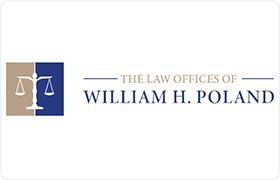Pleasant View Juvenile Law Lawyer, Tennessee
Sponsored Law Firm
-
 x
x

Click For More Info:
-
Law Offices of William H. Poland
408 Franklin St Clarksville, TN 37040» view mapCriminal Defense Law Sound, Professional, & Timely Service
As your attorney, you can be assured that we will use our best reasonable efforts to conclude your matter favorably and to keep you advised of the status of your case.
800-810-3461
Adrienne Hope Welchance
Criminal, Juvenile Law, Elder Law
Status: In Good Standing Licensed: 10 Years
Alexandra Mayo Bloodworth Rogers
Juvenile Law, Education, Labor Law, Housing & Construction Defects
Status: In Good Standing Licensed: 7 Years
Alison Helen Lorna Mckenzie
Juvenile Law, Federal Appellate Practice, Estate Planning, Family Law
Status: In Good Standing Licensed: 15 Years
Allison E. Cooley
Juvenile Law, Wills & Probate, Family Law, Administrative Law
Status: In Good Standing Licensed: 14 Years
Allison Elizabeth Cooley
Estate Planning, Family Law, Juvenile Law, Elder Law
Status: In Good Standing Licensed: 14 Years
Amanda Lachelle Rucker
Juvenile Law, State Government, Family Law, Administrative Law
Status: In Good Standing Licensed: 15 Years
Amy Willoughby Bryant
Estate Planning, Elder Law, Juvenile Law, Trusts
Status: In Good Standing Licensed: 18 Years
Amy Willoughby Bryant
Juvenile Law, Elder Law, Trusts, Estate Planning
Status: In Good Standing Licensed: 18 Years
 Will Poland Clarksville, TN
Will Poland Clarksville, TN Practice AreasExpertise
Practice AreasExpertise
